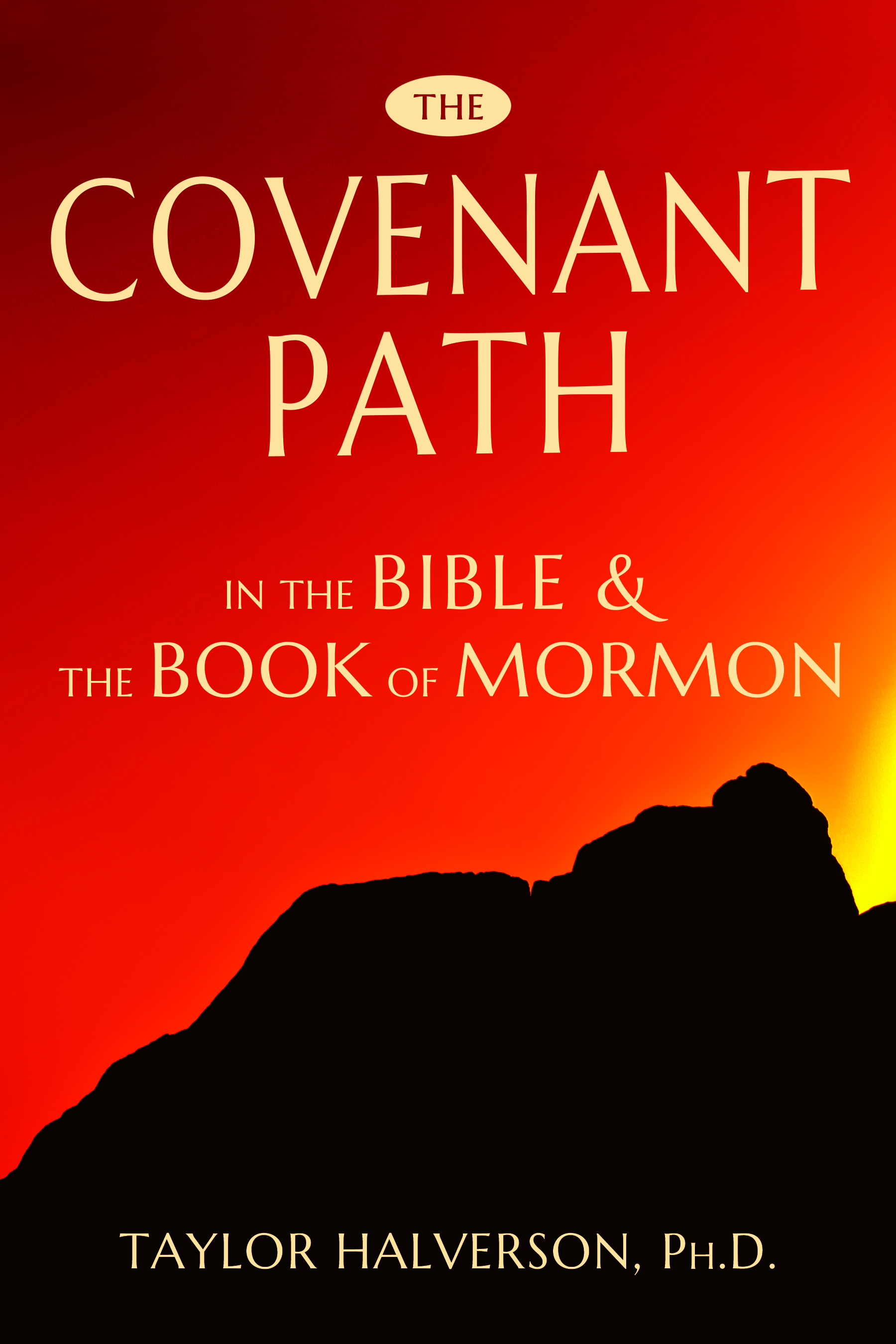Why did Jesus deliver the Sermon on the Mount, an old-world speech, to people in the New World?
I’ve done plenty of speaking and presenting in my time. Sure, I repeat presentations from time to time, but often I prepare a brand-new presentation for each group, taking into consideration their needs and interests.
When I do repeat a presentation or a speech, I don’t do so word for word. In fact, I make changes and updates based on the audience.
Why is it that the Sermon at the Nephite Temple is nearly word for word identical to the Sermon on the Mount? Why didn’t Jesus provide a fresh, new perspective for these listeners? Why didn’t Jesus craft a speech specifically designed for the Nephites, their history, and their circumstances?
Because of the Law of Moses.
And because of covenants.
A covenantal perspective answers the question.
Too often, I have seen, readers of the sacred Nephite text get discombobulated because Jesus repeats to the Nephites the Sermon on the Mount nearly word for word. When people wonder and worry about this, they are reading from their present worldview and imposing their views on Jesus and the scripture.
Instead, we should read from the perspective of Jesus.
Instead of counseling Jesus about how He should have created and preserved scriptures, we should take counsel from Him about how and why the scriptures were produced and preserved. We are far more likely to find understanding and joy.
To answer the question: how does a covenantal perspective explain why Jesus repeated an Old World sermon in the New World?
The Law of Moses = the Torah = Instruction for Covenantal Loyalty
Let’s briefly review the covenantal nature of the Law of Moses while connecting that law to the promises God made to Abraham and his posterity.
When we review Genesis 15, we remember that God put himself under a solemn oath and covenant to fulfill the promises He had made to Abraham in Genesis 12. God covenanted that He would be cut in half, just as the cut up animals in Genesis 15, if He failed to fulfill His promised obligations to Abraham. Because God is God and cannot lie and cannot die, He can only, must, and will fulfill His covenantal obligations to Abraham and Abraham’s posterity (us!).
Saving the Israelites from Egyptian bondage is one of the most powerful pieces of covenantal evidence God has preserved in scripture to demonstrate that He will fulfill the promises to Abraham. In fact, Exodus 2:24 tells us that the reason God delivered the Israelites from Egyptian bondage was because He remembered His covenant to Abraham, “And God heard their groaning, and God remembered his covenant with Abraham, with Isaac, and with Jacob.”
After God saved the Israelites from Egyptian servitude, He brought them to Mount Sinai where through Moses, He delivered a set of instructions to the Israelites explaining how they should be covenantally loyal to Him. God reminded the Israelites of the great deeds of salvation He had done on their behalf (see Exodus 20:1-2) and therefore they should be covenantally loyal to Him in order to fully receive and experience the Abrahamic blessings.
And how were the Israelites to show covenantal loyalty to God?
The Ten Commandments are the instructions and stipulations for how to be loyal to God.
Why did God so often remind ancient Israelites to keep the commandments? Because these were the expressions of the covenantal agreement whereby the Israelites showed faithfulness and love within the covenantal bonds.
To keep the commandments is to show God covenantal love, loyalty, and faithfulness.
But what does this have to do with the Sermon on the Mount or the Sermon at the Nephite Temple?
When Jesus delivered the Sermon on the Mount, He became a new Moses who delivered a new, or rather, an updated set of covenantal instructions for how we can be faithful to God.
Whereas the people of God had needed to live the Law of Moses to demonstrate covenantal fidelity, Jesus was providing updated instructions. Jesus essentially taught “Moses instructed you to show covenantal love and loyalty by doing X. I now say unto you, show your covenantal love and loyalty by doing Y.”
Jesus could have done some other speech for the Nephites. But it would have been a spiritual and covenantal disaster for them to not receive the updated instructional manual from Jesus on how to be covenantally loyal to God. And because the agreement is precise in nature, Jesus was precise in delivering the same agreement, the same set of instructions whether in the old world or the new world, because both groups had the same prior law.
In conclusion, the Sermon on the Mount and the Sermon at the Temple are the updated covenantal instructions whereby God’s saints anciently were asked to show their faithful loyalty to God.
We are still under the same obligations, though God will send updated covenantal instructions from time to time via revelation through modern day prophets.
When we read the Sermon at the Temple and when we see the strong similarities between the Sermon on the Mount and the Sermon at the Temple, we can respond in a several important ways.
First, we can be grateful to God that He ensures that His people have the most up-to-date instructions for how we can show our loving loyalty to Him.
Second, we can remember that these sermons are covenantal in nature and purpose.
Third, we can be grateful for God’s covenants.
Fourth, we can regularly review these sermons to remind ourselves how to best show loyalty to God.
Finally, we can be grateful again that God is a God of covenants. And those covenants are with us. He is actively and proactively seeking to be with us. He is willing to bind Himself eternally to us through covenants. We can be grateful that God cares so much about our prosperity that He has put Himself into an eternal covenantal bond with us. He will always and persistently invite us to remember the parameters of this covenant.
When we read these sermons, let us be reminded of how God wants us to show enduring covenantal loyalty to him.
More from Taylor Halverson
Find out for yourself why my latest book hit #1 on Amazon! Hear Him: Listening to the Voice of God in Scriptures and in Our Lives by Taylor Halverson, Lisa Halverson, with Tyler Griffin.
Want to better understand the Bible and the Book of Mormon? Then this is a must-read The Covenant Path in the Bible and the Book of Mormon available on Amazon and Deseret Book!

Join my newsletter and receive a free humorous eBook Memoirs of the Ward Rumor Control Coordinator is a light-hearted look at our beloved Mormon Church of Jesus Christ of Latter-day Saints culture. When you join my newsletter, it’s a bit like voting for Pedro. Your wildest dreams might come true!








